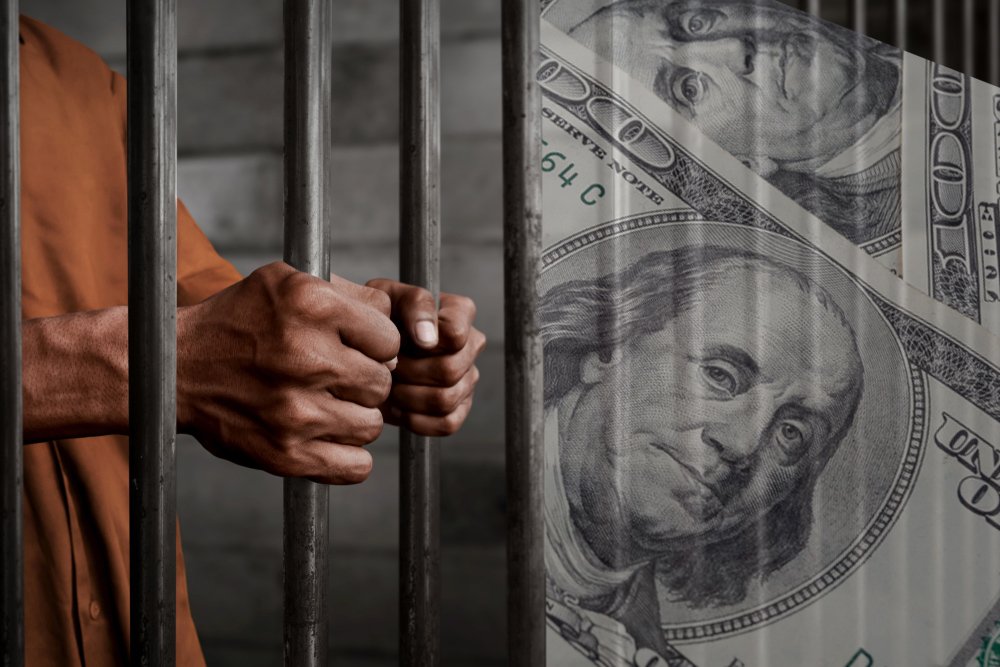ARS § 13-3209 is the Arizona statute that defines the crime of pandering. People commit this offense when they knowingly encourage, pressure, or coerce someone to become a prostitute or to engage in an act of prostitution. A violation of this law is a Class 5 felony punishable by a state prison term of over two years.
The language of ARS § 13-3209 states that:
A person is guilty of a class 5 felony who knowingly:
- Places any person in the charge or custody of any other person for purposes of prostitution.
- Places any person in a house of prostitution with the intent that such person become a prostitute or engage in an act of prostitution.
- Compels, induces or encourages any person to reside with that person, or with any other person, for the purpose of prostitution.
- Compels, induces or encourages any person to become a prostitute or engage in an act of prostitution.
Examples
- encouraging a spouse to perform acts of prostitution.
- setting a friend up to work in a house of prostitution.
- using someone’s debt against them so that they commit certain sexual acts.
Defenses
People facing a pandering charge can challenge it with a legal defense. A few common defenses include defendants showing that they:
- were entrapped by law enforcement,
- were falsely accused, and/or
- did not act knowingly.
Penalties
A violation of this law is a Class 5 felony (as opposed to a misdemeanor offense). The crime is punishable by:
- a prison sentence of up to two years and six months, and/or
- a maximum fine of $150,000.
In this article, our criminal defense attorneys will discuss what the law is under this statute, defenses available if charged, the penalties for a conviction, and related crimes.

ARS 13-3209 defines the crime of pandering as when a person knowingly encourages, pressures, or coerces someone to become a prostitute or to engage in an act of prostitution.
1. How does Arizona law define “pandering”?
People are guilty of a criminal offense under Arizona’s pandering statute if they knowingly:
- place any person in the charge or custody of any other person for purposes of prostitution,
- place any person in a house of prostitution with the intent that such person becomes a prostitute or engages in an act of prostitution.
- compel, induce, or encourage any person to reside with someone for the purpose of prostitution.
- compel, induce, or encourage any person to become a prostitute or engage in an act of prostitution.1
For purposes of this statute, “prostitution” means engaging in, agreeing, or offering to engage in sexual conduct under a fee arrangement with any person for money or any other valuable consideration.2
Note that pandering is a separate offense than pimping. The latter is associated with a person receiving the earnings of a prostitute and is charged under ARS 13-3204.
Solicitation is yet another crime related to, but distinct from, pandering. Per ARS 13-1002, people commit solicitation when they encourage or solicit another person to engage in certain conduct that adds up to misdemeanor or felony charges.
2. Are there defenses to ARS 13-3209?
Criminal defense lawyers draw upon several legal strategies/disclaimers to help clients contest pandering charges. Three common ones include showing that accused people:
- were entrapped.
- were falsely accused.
- did not act knowingly.
2.1 Entrapment
Entrapment is when law enforcement agents use some overbearing conduct to trick a person into committing a crime. The defense often arises when someone is charged with pandering after an undercover sting. Entrapment is an acceptable legal defense so long as the accused shows he/she only committed the pandering because of the entrapment.
2.2 Falsely accused
This is a common defense when the accused has an ex-girlfriend or boyfriend who was a prostitute. Here, the prostitute may falsely accuse the defendant of pandering to:
- get back at the defendant for some reason, or
- reduce his/her own criminal liability.
No matter the reason, this is a good defense if the accused can show that he/she was unjustly blamed.
2.3 No knowledge
Recall that people are only guilty of pandering if they knowingly encourage or coerce someone into becoming a prostitute. This means it is always a defense for defendants to show that they did not act knowingly.
Maybe, for example, a defendant stole money from a person, which led the “victim” to turn to an act of prostitution to get some cash. While the stealing may have contributed to the prostitution, the defendant did not knowingly cause the person to perform an act of prostitution.

A violation of this law can result in jail time and/or a fine.
3. What are the penalties?
An ARS 13-3209 violation is a Class 5 felony under Arizona law.3 The crime is punishable by:
- custody in state prison for up to two years and six months, and/or
- a maximum fine of $150,000.
These penalties increase if a person is convicted of a second or third offense of pandering.
If the pandering gets classified as a “dangerous offense,” then the crime is punishable by up to four years in prison.
Note that some Arizona sex crimes (like child sex trafficking) result in a person having to register as a sex offender. A pandering conviction, however, does not produce this result.
4. Are there related crimes?
There are three offenses related to pandering. These are:
- prostitution – ARS 13-3214,
- public sexual indecency – ARS 13-1403, and
- DUI – ARS 28-1381A1.
4.1 Prostitution – ARS 13-3214
Per ARS 13-3214, prostitution is the crime where people agree or offer to engage in sexual conduct with any person for money or any other valuable consideration.
As with pandering charges, people can often challenge a violation of Arizona’s prostitution laws with the defenses of entrapment and false accusations.
4.2 Public sexual indecency – ARS 13-1403
Per ARS 13-1403, public sexual indecency is the crime where people:
- engage in sexual contact, oral sex, sexual intercourse, or bestiality, and
- do so in the presence of another person with a reckless disregard as to whether the person would be offended.
Unlike with pandering, people have to act with some recklessness to be guilty of public sexual indecency. People, though, still have to act knowingly for a pandering conviction.
4.3 DUI – ARS 28-1381A1
Under ARS 28-1381A1, a driver commits DUI if he/she drives or is in actual physical control of a vehicle while under the influence of:
- alcohol,
- drugs,
- a vapor releasing substance containing a toxic substance, or
- any combination of liquor, drugs, or vapor.
Arizona law treats pandering as a more serious offense than DUI. The latter is a Class 1 misdemeanor punishable by jail time, fines, a potential license suspension, and traffic survival school completion.
Legal References:
- ARS 13-3209A1-4. See also State v. Daugherty, 173 Ariz. 548 (1992).
- ARS 13-3211(5).
- ARS 13-3209A.
